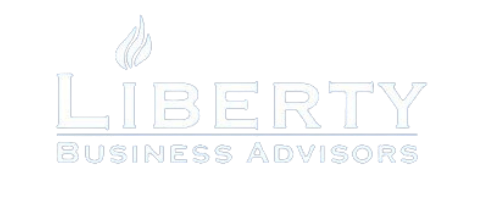Business Seller FAQs
What types of businesses do you represent?
We represent privately-held businesses with revenue ranging from $500K to $30M.
How long will it take to sell a business?
A business typically sells in 60-180 days, but each transaction is unique.
How much is my business worth?
Business value can be affected by many factors, including industry, financial performance, location, and the economy. We offer Business Valuation services that will help you to determine the most probable selling price.
Is it possible to conduct a CONFIDENTIAL transaction with you?
Absolutely! We understand the importance of maintaining confidentiality about the sale of the business. We’ve set confidentiality policies in place. All our buyer interactions and marketing activities are governed by these policies.
How do you market my business for sale?
To promote your business we will create a comprehensive marketing plan. Our marketing can be regional, national, or global, depending on the client’s needs. We conduct buyer searches through a combination of our extensive buyer database, networking, referrals, digital marketing, and advertising on industry websites. To maintain confidentiality, your business name and exact location will not be disclosed.
A professional Confidential Information Memorandum (CIM) of your business will be written to highlight to a potential buyer the benefits of owning it. CIM does not disclose the identity of the business. It allows buyers to determine if they are interested in the business. CIM must be approved by the business owner before it can be used to market the business.
How can I maximize the value of my business?
Advanced planning is the key. It’s important to show that your company is financially and operationally sound before presenting it to potential buyers. Exit planning will help you to identify the areas that can be improved.
Consult with a business broker as soon as you start considering selling your business. We encourage you to consult three to five years before you plan to sell your business in order to develop a successful exit strategy.
How do I know when it is the right time to sell my business?
In general, increasing revenue and profits are a good indicator that you should sell a business. A growing business indicates to the buyer that the business is run efficiently, so the buyer has confidence in purchasing it. If you wait until you need to sell the business urgently or if sales are declining, the purchase price could be lower.
However, even if your business is currently underperforming we still encourage you to contact us. Depending on the situation, some companies still have the potential to be sold even when struggling.
How much do you charge?
We do not charge upfront fees. Our firm is performance-based. In the event that your business fails to sell, you won’t owe anything. We are paid a percentage of a sale’s proceeds, but only if the business is sold.
How can I help sell my business?
- Keep normal business hours.
- Maintain accurate financial records of revenue, expenses, assets, and liabilities.
- Ensure that the business is clean and well-maintained.
- Equipment and furniture that are not part of the sale should be removed.
- Ensure we receive the required information on time.
Why do I need a business broker to sell my business?
The process of selling a business can be complex and stressful. Selling your business on your own could be very risky. Any statement you make to a buyer may become a liability for you later.
An experienced business broker or M&A advisor will advise and guide you through the entire process of marketing the business, qualifying potential buyers, conducting evaluations, negotiations, and closing all while ensuring that you will receive the highest value for your business.
In addition, intermediaries protect the company’s identity from a prospective buyer until a confidentiality agreement is signed by a qualified buyer.
What is the difference between asset purchase and stock purchase?
Assets and liabilities are transferred to the buyer in an asset sale, while the company’s shares remain with the seller. By purchasing the assets of a business, the buyer significantly reduces his risk of taking on undisclosed liabilities.
With a share purchase, the buyer becomes the owner of the legal entity, including all assets, liabilities, or tax history of the entity.
You should always consult with a professional before choosing the structure of the sale.
How will I be protected if I provide financing to the buyer?
A closing escrow agent will prepare a promissory note, a security agreement, and file a UCC-1 financing statement with the appropriate state and local agencies.
The lien will be recorded in the public record, and the assets listed on the UCC-1 cannot be legally sold or refinanced without your permission.
What is the training period for the buyer?
Training typically takes from two weeks to two months. Remember, it is in your best interest to train the buyer properly if you’re financing any portion of the deal.
What tax ramifications will I encounter when I sell my business?
Tax consequences for a seller are greatly affected by a deal’s structure and the purchase price. You should always consult with a professional before choosing the structure of the sale. It is important that you consult a CPA both before and after selling your business.
More questions? Have a conversation with us!
We take your privacy seriously. Your information is always kept strictly confidential.
Click here to read our full Privacy Policy.
